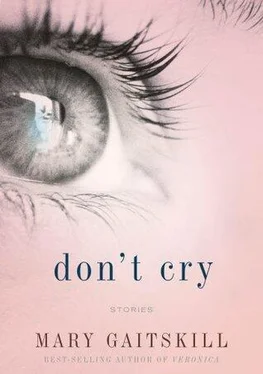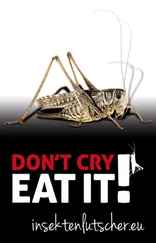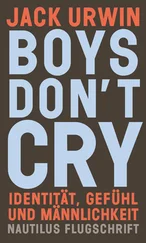“Hmmm—” Bea nervously half-laughed. “Do I look at all familiar to you?”
“I don't think so.” The woman's eyes were civil, but her voice was vaguely tinged with common sarcasm.
Coarse, thought Bea, and unobservant. “Well, I guess when you've lived as long as I have, a lot of people look familiar to you.”
“I know you,” said the child, still looking down. “You were in the magic cave. Downstairs.”
His mother looked irritated. “The what?”
“He means the walkway connecting the terminals,” said Bea. “It is like a magic cave, the way they've done it up.”
At this, the boy looked up; his gaze was alive and tactile, like a baby touching your face with its hands.
“What a beautiful little boy” said Bea. “And imaginative, too!”
“A beautiful little pain in the butt, you mean.” But the mother's face was grudgingly pleased. Her name was Lee Anne; her son was Michael. They had been visiting her sister, who lived in a suburb called Canton, and were now waiting for their return flight to Memphis, which had been delayed. Bea and Lee Anne talked about Canton and Livonia, where Bea's family lived; Bea described the crab-apple tree, with its hard dark fruit and soft pale flowers. While they talked, Michael walked around and around them, as if he was dying to run or dance. Could you eat the crab apples? he wanted to know. Could you throw them at people? Could you put them on the floor at night, so crooks would slip and break their butts?
“Michael, sit down,” said Lee Anne.
He sat, and immediately began to rock and nod his head.
“Well,” said Bea, “I—”
“You talk to yourself,” said Michael, rocking. “In the magic tunnel, you talk to yourself.”
“Don't be rude!” snapped Lee Anne. She whacked her son on the head with the flat of her hand. “And quit rocking like a retard.”
“It's all right,” said Bea. “I probably was.”
“That doesn't matter; I still don't want him being rude.” She stood, looming over Bea with an air of physical dominance that was startling before Bea realized it was habitual. “Listen, could you just watch him for a minute? I want to see if I can talk to these jackasses here.” She gestured at the check-in counter, where a man and a woman in short-sleeved uniforms made automaton motions.
“Certainly,” said Bea. Lee Anne held her eye for a second as if to make sure of her, then went on toward the check-in counter, her hips expressing a steady, rolling force.
“She's the one who said you talk to yourself,” said Michael sullenly. He was still now, and very sober.
“It's okay, honey I do talk to myself sometimes.”
He raised his head and touched her again with his tactile gaze. Except this look did not have the feel of a baby's touch. It was warm and strong, curiously adult. “Who do you talk to?”
“Somebody who's gone. Somebody I used to love.”
Used to. He turned away, but still she felt it coming from him, warmth as strong as the arm of a man laid across her shoulders. Feeling came up in her.
Attention: Those passengers waiting for flight 83 to Memphis—
“I talk to my father sometimes,” he said. “Even though he's gone.”
She started to ask where his father was and then stopped herself. Feeling came up.
— will be boarding in approximately five minutes.
“My father is fighting in Iraq,” said Michael. He looked at her, but his eyes did not reach out to touch her. They looked like they had when he rode above her on the escalator — deep and fiery but murky, too.
“You must be proud,” she said.
“I am proud!” His eyes were bright, too bright. He was beginning to rock. “My father is our secret weapon! He's fighting on the shoulders of giant apes! He's throwing mountains and planets!”
Impulsively, Bea knelt and took the boy's shoulders to stop him from rocking. She looked into his too-bright eyes. “And he is proud of you,” she said. “He knows he has a very good boy. He is very proud.”
“Okay, Mikey it's time to go.” Lee Anne was back, and full of business. “We're outta here.” She hoisted a backpack up on a chair and slipped one arm through a strap. She glanced at Bea. “Nice talking to you.” She shouldered the pack with a graceful swooping squat, then picked up a bulging canvas bag.
“Yes, you, too. And best to your husband in Iraq.”
Michael shot Bea a look. Lee Anne's face darkened unreadably “He's been telling you stories,” she said. “I don't have a husband. I don't have anybody in Iraq.”
And they were gone. Bea saw Lee Anne slap her son on the head once more before they disappeared. Oh, don't, thought Bea. Please don't. But of course she would. The woman was alone and overworked, had probably never married, probably hadn't wanted the child. At least I talked to him, thought Bea; I talked to him and he responded — he responded almost like an adult speaking a child's language.
And she got on the plane. The stewardess smiled at her, and she slowly made her way down the neutral space of the aisle. She found her seat, stowed her bag, then took out her book and opened it. Children had always responded to her. When Megan and Susan were little and they fought, she rarely had to punish them; she just talked to them in her love voice, and usually they would forget their fight and look at her, waiting to see what she would say next. She could say, “Let's go out into the yard and see what we can find. Maybe we'll see a field mouse or a four-leaf clover!” And quietly they would take her hands and go.
The stewardess came down the aisle, closing the overhead compartments, making sure they were tucked into their seat belts. What luck: She had the whole row to herself.
Before they went to sleep, her children would talk to her about anything, artlessly opening their most private doors so that she could make sure all was in order there. When Megan wet the bed, she would go, half-asleep, to her parents’ room, pull off her wet gown, and get between them in her mother's chemise, a little white sardine still fragrant with briny pee. Even at thirteen, Susan would run to her, crying, “Mama, Mama!” Once she sank down on the floor and butted Bea's stomach like she wanted to get back inside it.
The plane pushed back. Now no private door was open to her; not even Megan's face was open to her. Susan hadn't come to her even when she was raped in the parking structure, hadn't even told her about it until ten years later, when she could say, clipped and insistent, that it wasn't “such a big deal.”
The plane turned on the runway like a live thing slowly turning in heavy water. Sunlight glinted on its rattling, battered wing. Still, Megan had flown her out to visit, and taken her to a play Susan and her girlfriend were coming for Easter. Both girls came to visit every Christmas, and had since they'd moved away from home. When she left Mac and was living from apartment to wretched apartment, the girls divided their Christmas time with scrupulous fairness. Megan spent two nights in Bea's apartment, while Susan spent two nights with Mac; then they switched. The two of them spent Christmas Eve with her, and Christmas Day with him, then the other way the next year.
But she knew they'd rather see her than Mac. Sometimes Susan even sneaked in extra time with her mother, pretending to Mac that she'd left on Tuesday, when she had really stayed through Wednesday with her mother. It was cruel, but so was Mac. When the girls stayed with him, he walked through the house, yelling about how terrible Bea was or declaring that he wanted to die, and that if it wasn't Christmas Eve, he'd kill himself that night. When he did calm down and talk to one of his daughters, it was about grocery-store prices or TV shows. “And I tell him over and over again that I don't watch TV!” said Susan, laughing. Susan laughed, but Megan got mad and fought with him. “Oh give it a break!” she yelled. “You've been talking about how you're going to kill yourself for the last ten years, and you know you aren't going to!” And then she told her mother and Susan about it.
Читать дальше












